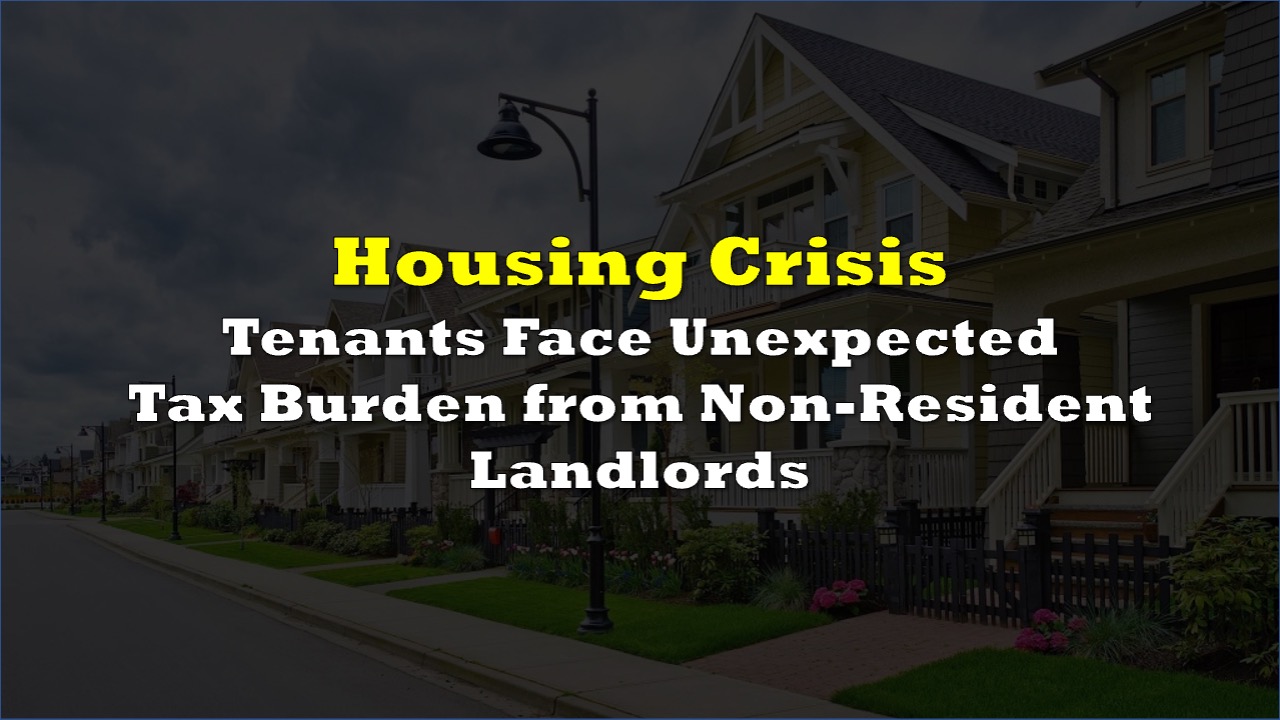As if not being able to afford to buy a house wasn’t bad enough, a recent tax court case in Canada has brought to light an obscure law that can leave tenants on the hook for unpaid taxes owed by their non-resident landlords.
Last year, a Montreal tenant was audited and ordered to pay six years’ worth of unpaid taxes, interest, and penalties that his overseas landlord had failed to remit to the Canada Revenue Agency (CRA). Under Canadian law, tenants are required to withhold and remit 25% of rent payments to non-resident landlords. This applies even if the tenant was unaware their landlord lived outside of Canada.
How many tenants are going to know to do this?
— Justice_Queen ⚖️ 🔰🪬 (@RE_MarketWatch) April 13, 2024
John pays $3,500 gross rent per month to his landlord Asha. If his landlord is a non-resident, he will deduct $875 ($3,500 x 25%) as withholding tax and give Asha $2,625 as rent.
How many LL are going to reveal they are… https://t.co/2zx5wVHtLZ pic.twitter.com/4Xh3uzx8Gm
The tax court judge acknowledged the “harsh consequences” but ruled the tenant was liable as the “resident payer.” Tax lawyer Eric Luu, who defended the tenant, said the law treats residential rents the same as sophisticated business transactions, placing an unfair burden on unsuspecting tenants.
Also read: Homeownership Feels Out of Reach for Many Canadians
Experts estimate many non-resident landlords, especially in hot real estate markets like Vancouver, are not properly remitting their taxes. Realtor Lorne Goldman told The Globe and Mail that 99.99% of tenants are unaware of this obscure requirement. Lawyer Ron Usher noted it is “breathtakingly difficult” for tenants to determine a landlord’s tax residency status.
While property managers can handle the tax remittances, some non-resident landlords refuse to pay.
Lawyers argue the CRA should find ways to collect from non-resident landlords directly, rather than defaulting to tenants. They suggest tenants should have the same protections as homebuyers, who must declare a seller’s tax status. Amid a housing crisis, placing this additional burden on vulnerable tenants just seems misguided.
Information for this story was found via the sources and companies mentioned. The author has no securities or affiliations related to the organizations discussed. Not a recommendation to buy or sell. Always do additional research and consult a professional before purchasing a security. The author holds no licenses.









